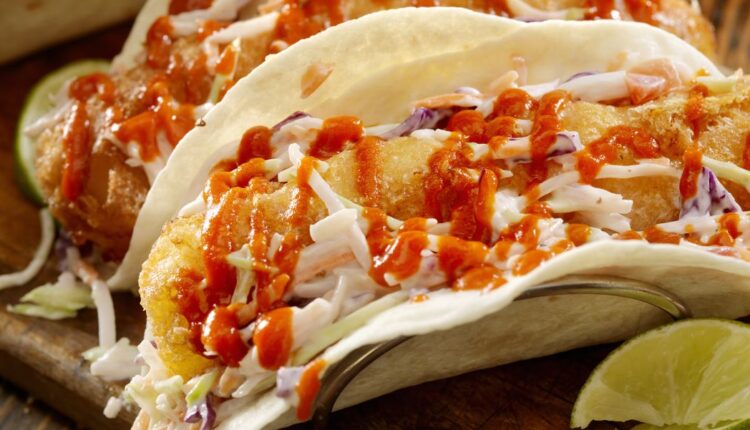So you’re wavering about the spicy wings or the extra hot sauce on your scrambled eggs. Yes, it tastes great. But a little later on, and maybe even tomorrow, the feeling on the other end might not be so amazing. So you’re caught up in whether to go for the indulge now/pay for it later scenario or just stay away.
If you’re one of those people for whom the aftermath of a fabulously spicy meal is a burning sensation when you poop, there’s hope. You don’t have to avoid your favorite foods in order to avoid that burning regret later.
Why do spicy foods cause such drama when you are getting rid of them? Here’s the lowdown on what’s happening: When you consume spicy foods, the compounds that give them heat move through your body relatively unchanged. Since they aren’t nutrients, your body doesn’t absorb them, says Luigi Basso, M.D., a specialist in coloproctology and laparoscopic surgery at Sapienza University of Rome in Italy.
That leaves your poop laced with spicy particles, and helps explain why it burns when you poop. “Since the last part of your anal region—your rectum and anus—is lined by cells similar to those in your mouth, spicy foods can burn just as much on the way out as on the way in,” says Dr. Basso. Ouch.
Your biology might be making it worse
This burning poop sensation can happen to anyone, but it’s often worse in people who have certain gastrointestinal issues to begin with. So “make sure you don’t have other things going on that would predispose you to being more sensitive,” says Bruno P. Chumpitazi, M.D., a spokesperson for the American Gastroenterological Association and director of the neurogastroenterology and motility program at Texas Children’s Hospital.
“A lot of people with irritable bowel syndrome can be overly sensitive to foods,” he says. So spicy foods can engender pain and discomfort. Hot foods can also be challenging for people with hemorrhoids or anal fissures, says Dr. Chumpitazi. Hemorrhoids are simply blood vessels inside the lower rectum or just outside it that have bulges in them. Fissures are just like they sound—little tears that tend to be caused by constipation and sometimes even by diarrhea. You’re going to want to take care of that constipation (here’s how). If you’re prone to hemorrhoids, using over-the-counter remedies (think Preparation H) can minimize the burning butt pain.
How to poop in peace after eating spicy foods
Of course, not eating spicy foods is one way to go. But if you’re not going to do that (we’re with you on that), try these strategies:
Tweak your menu.
Limit spicy foods that are both spicy and fatty, like chicken wings or quesadillas smothered in hot sauce. Excess fat can be a problem because the bile salts your body uses to digest them can irritate the skin around your anus, says Brooks D. Cash, M.D., a professor of medicine at the University of South Alabama.
If you’re not giving up wings any time soon, soak up some of the fatty acids in your gut by taking a fiber supplement before or right after you eat to avoid burning poop, Dr. Cash suggests. That helps bind the spice up into your poop so it won’t burn so much on the way out, explains Sameer Islam, M.D., a gastroenterologist in Lubbock, Texas (who also hosts popular talks about poop on his YouTube channel).
Even better, have a diet that’s consistently high in fiber, says Dr. Chumpitazi. Not only is it good for your health in so many ways, it may prevent constipation, anal fissures, and even hemorrhoids, which may be at the root of the burning poop or burning diarrhea issue. And until the fiber works, some people find relief from fissures and hemorrhoids by sitting in a warm bath (no soap needed). It also helps to use moist towelettes or damp toilet paper instead of dry when wiping.
Eat more spice.
This sounds totally counterintuitive, but one way to reduce (eventually) the burning sensation when you poop is to actually eat more spice. If you only eat spicy foods for a couple days, you induce “rectal hypersensitivity”—that burning pain, plus the frequent urge to go number two, says Sutep Gonlachanvit, M.D., chief of the division of gastroenterology at Chulalongkorn University in Bangkok, Thailand.
“But continuous [spicy food] ingestion for greater than three weeks can induce desensitization—which in turn can reduce rectal sensation,” he says. In his research, people who consumed 2.1 grams of hot pepper per day—that’s about 1.25 teaspoons of cayenne pepper—experienced this benefit. Dr. Islam recommends that you try this hot pepper boot camp for your butt for a week. “Have one spicy hell week,” he says. “Go crazy and develop that tolerance.” Once you train pain receptors in your gut to cope with the spices better, they become tolerant of them.
Clean your butt.
The receptors are on the inside of your GI tract, so putting something on the outside is unlikely to help in the long run. But as a short-term fix, you could apply a soothing cream to a clean butt—use one such as Calmoseptine ointment, which contains calamine to reduce itching and burning. You can also try Desitin (yes, it’s diaper rash cream, but it also works for adults), recommends Dr. Islam. “And make sure you don’t use a hemorrhoid cream with a steroid or Prednisone, because that could make your irritation worse,” he says. (This may also help during your spicy hell week.)
“Just apply a dab the size of a dime to the anal opening and create a thin smear,” advises Arnold Wald, M.D., a professor of gastroenterology and hepatology at the University of Wisconsin-Madison.
One more thing: If discomfort lingers after you’ve taken a burning poop, see your doctor. Pain in your butt can be a symptom of more serious problems like an infection, abscess, or cancer, says Steven D. Wexner, M.D., director of the Digestive Disease Center at Cleveland Clinic Florida.




Comments are closed.